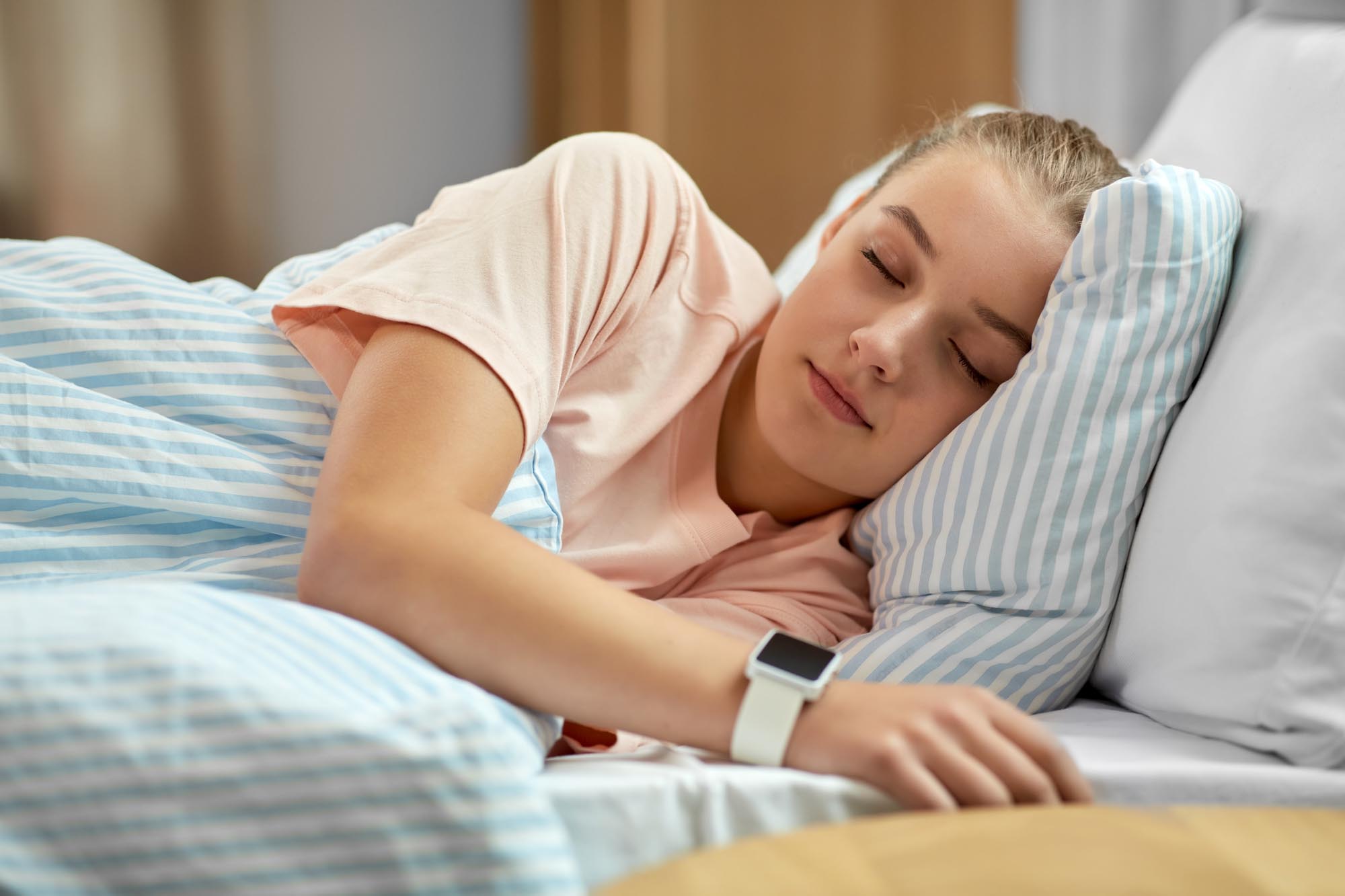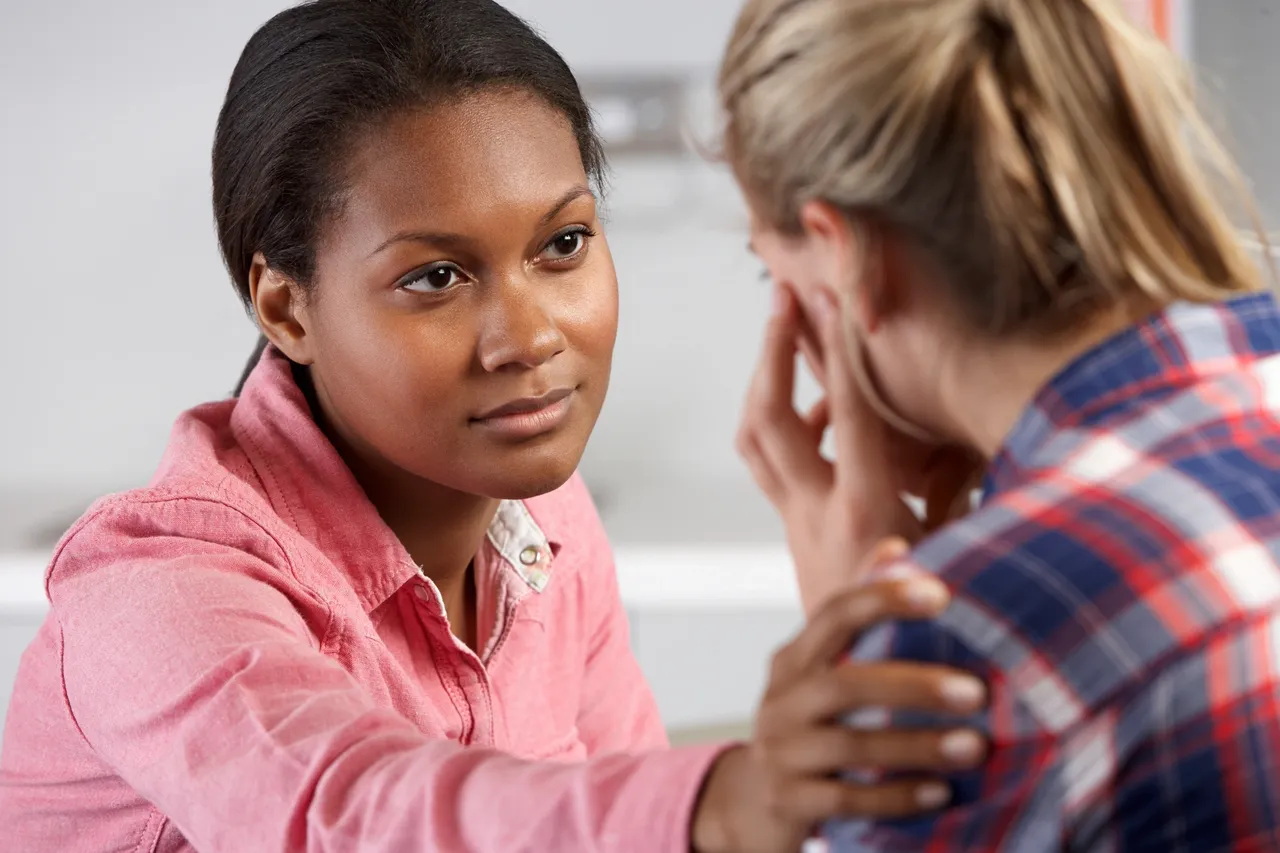Understanding the Link Between Sleep and Adolescent Mental Health
More teenagers are facing mental health challenges than ever before, and one major factor is often overlooked—sleep. Sleep and Adolescent Mental Health are closely connected, as lack of rest can contribute to anxiety, depression, and emotional struggles. With academic pressures, social expectations, and screen time disrupting sleep patterns, many young people are not getting the rest they need. Prioritizing healthy sleep habits is essential for improving mental well-being and overall resilience.
The Role of Sleep in Adolescent Mental Health
Sleep plays a vital role in adolescent mental well-being. Research demonstrates a two-way relationship between sleep patterns and psychological health:
- Poor sleep quality increases vulnerability to mental health issues
- Mental health challenges disrupt natural sleep cycles
- Adequate sleep strengthens emotional resilience
The teenage years represent a critical period for both physical and psychological development. During adolescence, the brain undergoes substantial changes, making quality sleep essential for:
- Emotional regulation: Processing daily experiences and managing stress
- Hormonal balance: Supporting healthy physical development
- Cognitive function: Enhancing learning and memory consolidation
The American Academy of Sleep Medicine emphasizes that proper sleep habits during adolescence create a foundation for lifelong mental wellness. Studies show that teenagers who maintain healthy sleep patterns experience:
- Lower rates of anxiety and depression
- Better stress management capabilities
- Improved emotional stability
- Enhanced social relationships
Supporting Adolescent Mental Health Through Sleep
Understanding this connection helps parents, healthcare providers, and educators support adolescent mental health through targeted sleep interventions and education. For those seeking professional help, programs like the ones offered by Build Bright Care Group provide comprehensive support for adolescents facing mental health challenges. Their evidence-based treatments can be instrumental in addressing these issues effectively. If you’re interested in learning more about their services or need to get in touch, you can find more information on their contact page.
The Impact of Sleep Deprivation on Mental Well-being
The American Academy of Sleep Medicine recommends 8-10 hours of sleep for teenagers – a target that many high school students fail to meet. This sleep deficit creates a concerning pattern of chronic sleep deprivation among adolescents.
Challenges to Achieving Adequate Sleep
Modern teenage life presents multiple challenges to achieving adequate sleep:
- Academic Pressure: Heavy homework loads and early school start times
- Extracurricular Activities: Sports practices, club meetings, volunteer work
- Part-time Jobs: Evening or weekend work shifts
- Social Commitments: Time with friends, family obligations
- Digital Distractions: Social media, gaming, streaming services
The Impact of Sleep Deprivation on Mental Health
Sleep deprivation takes a serious toll on mental health, especially during adolescence when the brain is still developing. Without enough rest, students are more likely to experience emotional distress, engage in risky behaviors, and struggle with symptoms of depression. Poor sleep habits can affect mood, decision-making, and overall well-being, making it essential to prioritize healthy sleep patterns for long-term mental health.
Understanding the Biological Factors Behind Sleep Deprivation
The biological sleep-wake cycle shifts during teenage years, making teens naturally inclined to stay up later. This biological change, combined with early school start times, creates a perfect storm for sleep deprivation.
Addressing the Underlying Issues
Given these alarming statistics and trends, it’s crucial to address the underlying issues contributing to sleep deprivation among teenagers. Seeking professional help can be an effective way to manage these challenges. For instance, residential programs dedicated to teen treatment can provide structured support and resources for adolescents struggling with mental health issues related to sleep deprivation.
How Poor Sleep Quality Contributes to Mental Health Issues
Poor sleep quality has a significant impact on an adolescent’s emotional and behavioral well-being. Research shows that teenagers who experience disrupted sleep patterns have a hard time managing their emotions.
Emotional Impact:
- Increased irritability and sudden mood changes
- Difficulty regulating emotional responses
- Higher stress sensitivity
- Reduced ability to cope with daily challenges
Sleep-deprived teens show more severe symptoms of anxiety and depression. Adolescents with irregular sleep patterns are more likely to experience mood disturbances and emotional struggles than those who get consistent rest. This highlights the importance of addressing teen depression as part of a comprehensive approach to mental health.
Behavioral Manifestations:
- Reduced attention span during school hours
- Impulsive decision-making
- Difficulty maintaining social relationships
- Increased risk-taking behaviors
The connection between sleep quality and attention deficit symptoms creates additional challenges. Sleep-deprived teenagers struggle with:
- Task completion
- Information processing
- Working memory function
- Behavioral self-regulation
These cognitive and behavioral difficulties can persist even after one night of poor sleep, creating a cumulative effect that impacts daily functioning. Brain imaging studies show that sleep deprivation activates areas associated with negative thinking patterns while reducing activity in regions responsible for rational decision-making.
Understanding Gender Differences in Sleep Patterns and Mental Health
Research shows that sleep disruption affects adolescent mental health differently for boys and girls. Here’s how:
Effects of Poor Sleep on Girls
Girls tend to show more internal signs of poor sleep, such as:
- Increased anxiety levels
- Worsening symptoms of depression
- Heightened emotional sensitivity
- More frequent self-reported sleep problems
Effects of Poor Sleep on Boys
Boys, on the other hand, tend to show external signs when they don’t get enough sleep:
- More aggressive behavior
- Higher levels of hyperactivity
- Greater difficulty controlling impulses
- More pronounced attention issues
Sleep Needs of Adolescents
Adolescent sleep needs can vary by gender, with female adolescents often requiring slightly more sleep than their male peers. When girls consistently get less than the recommended amount of sleep, they are more likely to experience mood disturbances and symptoms of depression compared to those who maintain healthy sleep habits. Establishing a consistent sleep routine is crucial for supporting mental well-being during these critical developmental years.
Impact on Male Adolescents
Sleep deprivation in male adolescents can lead to increased hyperactivity and difficulty focusing, which can affect both behavior and academic performance. These challenges are often more pronounced in boys, resulting in lower grades and reduced participation in the classroom.
These differences between genders emphasize the importance of tailored approaches in addressing sleep-related mental health issues. While girls may benefit from interventions focused on managing emotions and reducing stress, boys might require strategies aimed at improving behavior control and attention skills.
The Role of Sleep in Academic Performance and Cognitive Development
Sleep plays a vital role in adolescents’ academic success and cognitive development. Research shows that students who consistently get adequate sleep demonstrate:
- Enhanced Memory Consolidation: During deep sleep, the brain processes and stores information learned during the day
- Improved Problem-Solving Skills: Well-rested students show better critical thinking abilities
- Stronger Focus and Attention: Students maintain better concentration during classes
- Higher Test Scores: Improvement in academic performance
Sleep deprivation directly impacts academic performance through:
- Reduced information retention
- Slower processing speed
- Decreased creativity
- Poor decision-making abilities
Students who get less than 6 hours of sleep per night often find it more challenging to focus on academic tasks. Lack of sleep can impair concentration, memory, and overall cognitive function, making it harder for students to perform well in school compared to their well-rested peers. Prioritizing adequate rest is essential for academic success and mental clarity.
The brain’s cognitive functions rely on quality sleep to:
- Transfer information from short-term to long-term memory
- Clear neural pathways for new learning
- Regulate emotional responses to academic stress
- Maintain optimal brain plasticity for skill acquisition
Students experiencing sleep deficits often face challenges with complex academic tasks, showing diminished performance in mathematics, reading comprehension, and abstract reasoning. These cognitive impacts extend beyond the classroom, affecting students’ ability to engage in extracurricular activities and maintain healthy social relationships.
Practical Strategies for Promoting Healthy Sleep Habits Among Adolescents
Implementing effective sleep hygiene practices can transform your teen’s mental well-being and daily functioning. These evidence-based strategies create lasting positive changes in sleep patterns and mental health outcomes.
1. Establishing a Consistent Bedtime Routine
A structured bedtime routine signals your body to prepare for sleep and regulates your natural circadian rhythm. Here’s what an effective routine looks like:
- Wind-down period (30-60 minutes before bed):
- Turn off electronic devices
- Engage in calming activities like reading or gentle stretching
- Practice relaxation techniques or mindfulness exercises
- Set sleep-wake schedule:
- Go to bed at the same time each night
- Wake up at a consistent time, even on weekends
- Allow 8-10 hours for sleep
- Pre-bedtime habits:
- Take a warm shower or bath
- Change into comfortable sleepwear
- Dim lights to trigger melatonin production
- Write in a journal to process daily thoughts
Research shows teens who maintain consistent bedtime routines experience:
- improvement in sleep quality
- Reduced time to fall asleep
- Fewer nighttime awakenings
- Better daytime alertness
Build Bright Care Group‘s mental health specialists recommend personalizing these routines to match your teen’s preferences while maintaining core sleep-promoting elements. Small adjustments to bedtime habits create significant improvements in sleep quality and mental health outcomes.
2. Creating a Sleep-Friendly Environment
Your bedroom environment plays a crucial role in achieving quality sleep. The ideal sleep space maintains a temperature between 60-67°F (15-19°C), creating optimal conditions for your body’s natural sleep cycle.
Essential elements of a sleep-friendly space:
- Blackout curtains or shades to block disruptive light
- White noise machines to mask environmental sounds
- Comfortable, supportive mattress and pillows
- Clean, breathable bedding materials
Light and Technology Management:
Keep electronic devices outside your bedroom – the blue light from screens interferes with your natural melatonin production. Replace bright overhead lights with dim, warm lighting options for the evening hours.
Air Quality Considerations:
A well-ventilated room with good air circulation helps maintain oxygen levels and removes sleep-disrupting pollutants. Consider using:
- Air purifiers to remove allergens
- Essential oil diffusers with calming scents like lavender
- Regular room cleaning to minimize dust
Your bedroom should serve as a dedicated sleep sanctuary – avoid using this space for homework, gaming, or other stimulating activities that can confuse your brain’s sleep-wake associations.
3. Encouraging Regular Physical Activity
Physical activity serves as a natural sleep regulator for adolescents. Regular exercise helps establish healthy sleep-wake cycles by:
- Increasing daytime energy expenditure
- Regulating body temperature
- Releasing endorphins that reduce stress
- Promoting deeper, more restorative sleep phases
The optimal timing for exercise matters:
- Morning workouts help reset circadian rhythms
- Afternoon activities boost alertness without disrupting sleep
- Evening exercises should end 2-3 hours before bedtime
Recommended physical activities for better sleep:
- Walking or cycling to school
- Participating in team sports
- Dancing
- Swimming
- Yoga or stretching exercises
Studies show adolescents who engage in 60 minutes of daily physical activity experience improved sleep quality and reduced mental health symptoms. The key lies in choosing activities that bring joy and satisfaction, making them sustainable long-term habits.
Parents can support this routine by participating in family activities, scheduling regular outdoor time, or enrolling teens in structured sports programs that align with their interests.
Seeking Professional Help for Adolescent Sleep Disorders and Mental Health Issues
Professional intervention becomes crucial when sleep issues persist despite lifestyle changes. Mental health professionals can:
- Conduct comprehensive sleep assessments
- Identify underlying mental health conditions
- Create personalized treatment plans
- Provide cognitive behavioral therapy for insomnia
Warning Signs to Watch For:
- Chronic difficulty falling or staying asleep
- Persistent daytime fatigue
- Declining academic performance
- Changes in mood or behavior
- Social withdrawal
Build Bright Care Group offers specialized treatment programs for adolescents struggling with mental health challenges. Our evidence-based approach combines sleep hygiene education, therapeutic interventions, and ongoing support to help teens achieve better sleep and improved mental well-being.
Remember: Early intervention can prevent the development of more serious mental health issues.If you or someone you know could benefit from our services, don’t hesitate to reach out. Contact us today to learn more about our tailored programs and how we can help your teen on their journey to better health.











